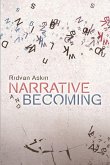To think of postcolonial critique as a philosophy of difference and an ethical relation to the Other is inconceivable without taking into account the work of Emmanuel Levinas. Levinas and the Postcolonial refuses all theoretical ghettos to bring welcome intellectual rigor, depth, and insight to the critique of global colonialism. Nick Nesbitt, Princeton University Drabinski resolutely places himself in the unacknowledged double bind between the ethical and the political in Levinas's work and, with an impressive and erudite humility, attempts to rethink Levinas for 'those of us with a materialist sensibility.' Gayatri Chakravorty Spivak, University Professor in the Humanities, Columbia University What can we learn from reading Levinas alongside postcolonial theories of difference? With that question in view, Drabinski undertakes readings of Gayatri Spivak, Homi Bhabha, Édouard Glissant, and Subcommandante Marcos in order to rethink ideas of difference, language, subjectivity, ethics, and politics. Through these philosophical readings, he gives a new perspective on the work of these important postcolonial theorists and helps make Levinas relevant to other disciplines concerned with postcolonialism and ethics. John Drabinski is Associate Professor of Black Studies at Amherst College. He is the author of Sensibility and Singularity (SUNY, 2001) and Godard Between Identity and Difference (Continuum, 2008).
Hinweis: Dieser Artikel kann nur an eine deutsche Lieferadresse ausgeliefert werden.
Hinweis: Dieser Artikel kann nur an eine deutsche Lieferadresse ausgeliefert werden.








